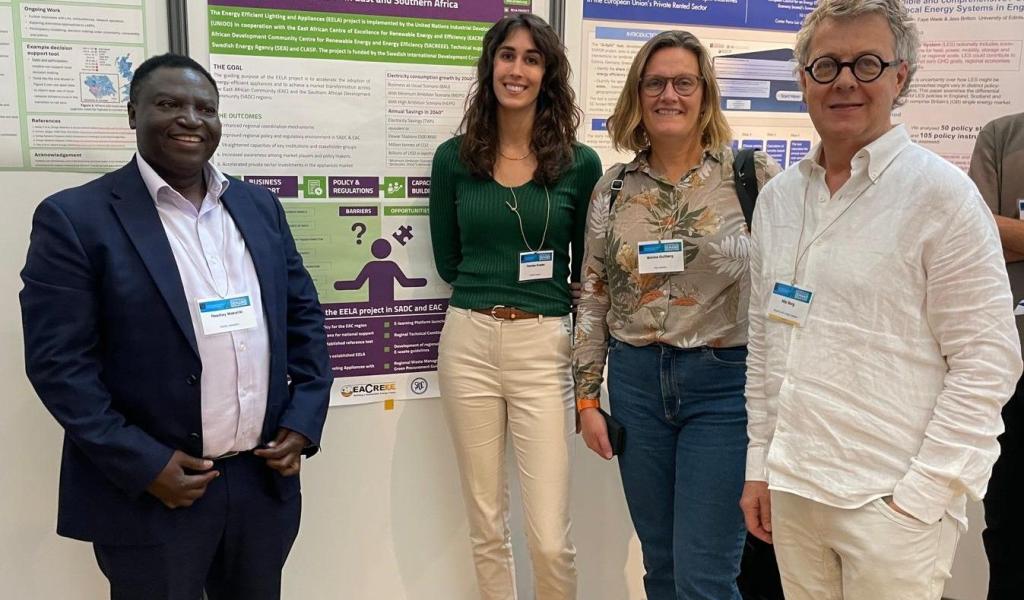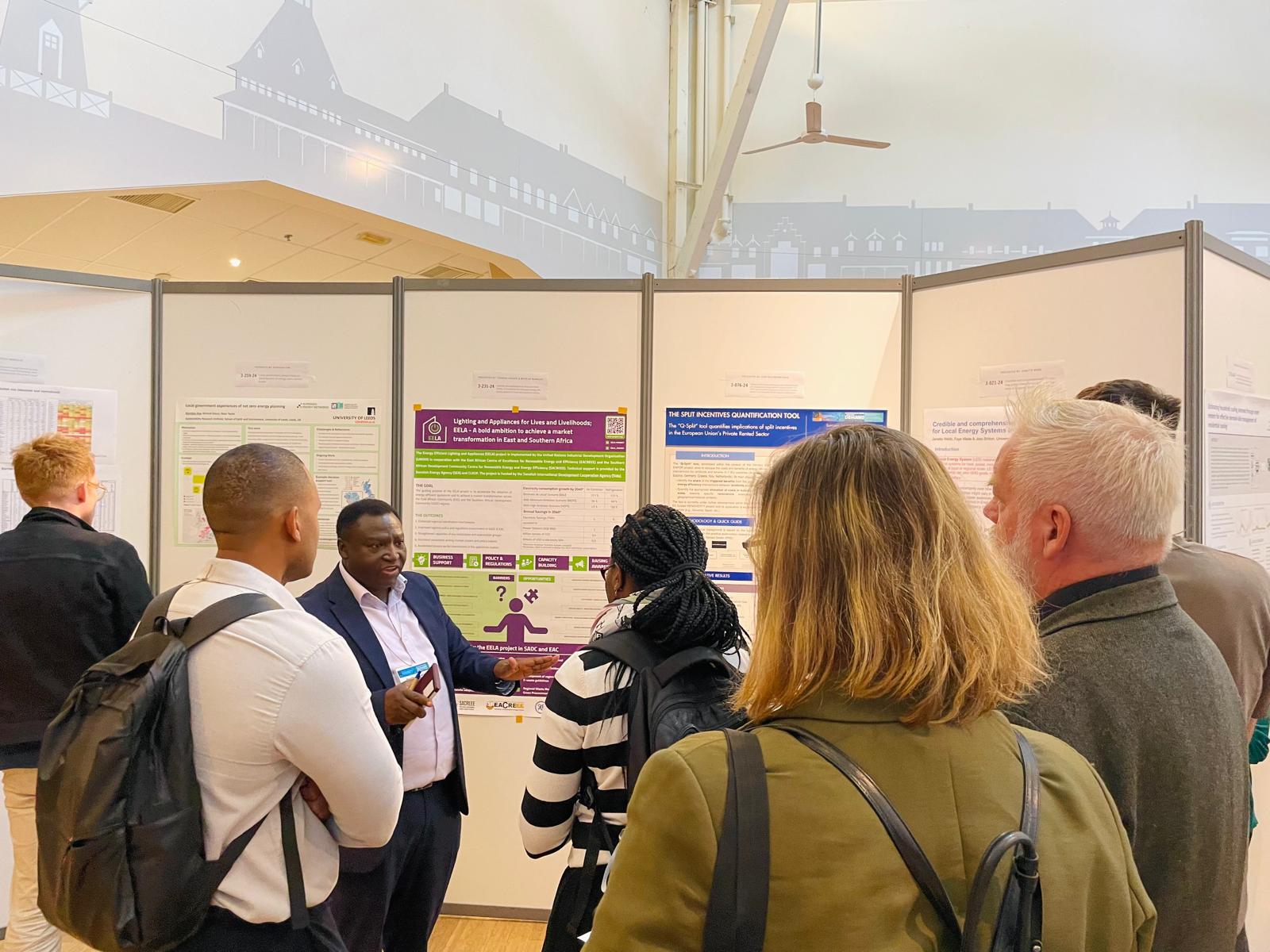News
Advancing Energy Efficiency in Africa – The EELA Project at ECEEE Summer Study

"Energy Efficiency first – if we are going to meet the climate goals." (Peter Bennich, SEA)
Improving energy efficiency (EE) is crucial in global climate efforts. Governments at COP28 have pledged to double the annual rate of EE improvements by 2030, aiming to increase annual progress from 2% to over 4% per year. This target is essential for reducing energy consumption, cutting greenhouse gas emissions, and promoting sustainable development. At the Summer Study on Energy Efficiency, hosted by the European Council for an Energy Efficient Economy (eceee), this topic was explored in depth. The eceee, Europe’s largest NGO dedicated to energy efficiency, provides evidence-based knowledge and policy analysis while fostering cooperation among stakeholders. The Summer Study offers a platform for experts to exchange practical experiences in an informal, solutions-oriented setting. Held in a picturesque French location, the event highlighted groundbreaking work in energy efficiency. Discussions focused on strategies for boosting energy efficiency in Sub-Saharan Africa, addressing challenges such as public awareness, legislation, regulations, design, and inclusivity.

This year, the Energy Efficient Lighting and Appliances (EELA) project team presented a peer-reviewed paper on "Lighting and Appliances for Lives and Livelihoods: A Foundation for Strategic Energy Efficiency Policies in East and Southern Africa." The paper was co-authored by Karin Reiss-Haimbala and Theresa Grader from UNIDO, Readlay from the SADC Centre for Renewable Energy and Energy Efficiency (SACREEE), and Monica Gullberg from Sida. The EELA project, funded by Sida and implemented by UNIDO, aims to transform markets in East and Southern Africa through a regionally harmonized approach. Collaborators include the East African Centre for Excellence on Renewable Energy and Energy Efficiency (SACREEE) and the Southern African Development Community Centre for Renewable Energy and Energy Efficiency (SADC). The EELA project focuses on lighting, air-conditioners, household appliances, and income-generating devices, achieving significant milestones over the past four years. These include enhanced policy dialogue, improved market governance, adoption of harmonized Minimum Energy Performance Standards (MEPS), establishment of compliance frameworks, strengthening of regional reference laboratories, and pilot projects for private sector development.
Key Takeaways
The session on the EELA project was well-attended, sparking lively discussions. The project was frequently referenced by other speakers as a successful energy efficiency intervention in Sub-Saharan Africa and was a key topic during an informal Sida-organised session on boosting regional energy efficiency. These discussions emphasized the importance of strategic EE policies in enhancing livelihoods and supporting sustainable development. Insights from these sessions will guide efforts to ensure energy-efficient solutions reach all communities. EELA's participation in the eceee Summer Study underscored UNIDO's commitment to promoting inclusive and sustainable industrialization, eradicating poverty, enhancing health and food security, fostering shared prosperity, and strengthening environmental safeguards in East and Southern Africa. EELA Lead Technical Expert Readlay Makaliki highlighted the project's potential for implementation across Africa and beyond to support a just energy transition and achieve the Sustainable Development Goals by 2030. "EELA's experiences in Africa offer valuable lessons adaptable to other regions," he concluded.
Way Forward: EELA 2.0
Sida has approved funding for a second phase of the EELA project, expanding it to the Economic Community of West African States (ECOWAS), increasing the total number of countries served to 36. Over five years, EELA 2.0 will work on improving the regulatory environment, enhancing private sector engagement, and facilitating the adoption of energy-efficient standards and compliance mechanisms. The project will be implemented by UNIDO, in collaboration with regional centers like ECREEE, EACREEE, and SACREEE.